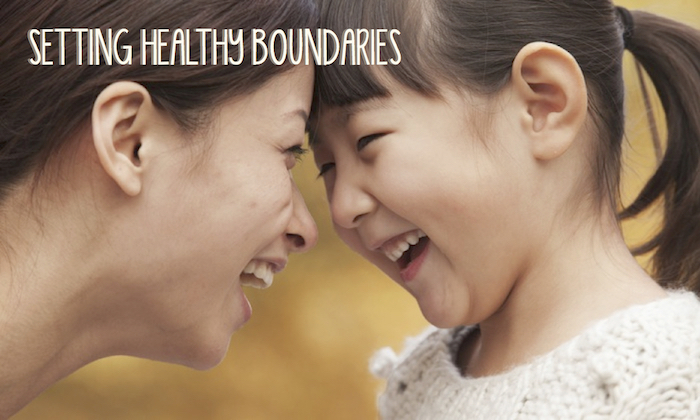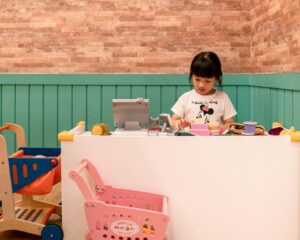
We all know how important it is to set healthy boundaries at home – whether it’s between parents and child, husband and wife, with relatives or with helpers. Helping a young child to understand and acknowledge healthy boundaries as they develop can be particularly challenging, and is a task best faced by starting with setting your own healthy boundaries. Though it may seem unrelated, understanding your own boundaries as a parent is the foundation in the development of your child’s healthy boundaries.
Understanding personal boundaries
A big part of our lives are made up of the different interactions with others and boundaries are the limits we set for the relationships with them. Having good personal boundaries means that we have a strong idea of what makes up our identity, values and self-worth. When we are aware, it means that we are able to identify and prioritise goals that are important to us in life as well as make decisions that truly contribute to our health and well-being.
It may be that recognising the importance of developing and fulfilling your interest in a particular area means a lot to you, and so you set aside time for it without attaching guilt or anxiety to it. In turn, you feel good and can therefore offer a better side of yourself to other areas in your life. It also means that because you know your limits and priorities, you are comfortable to say no to people or situations that exceed your abilities to fulfill their expectations. It’s about having limits set in place so that we can protect ourselves, yet being flexible enough to allow openness to other experiences and respect for others’ opinions and feelings.
Boundaries for yourself as a parent
Most of us have multiple roles in our lives as a parent, wife, friend or colleague. The pressure to perfect all those identities means we spend a lot of time caught up with who we think we should be, or who others expect us to be! In looking to fulfill those roles, we may end up with boundaries that are either too loose, where there is little sense of self, or too rigid, where every interaction from others is seen as an attack to our sense of self. In our everyday life, this may look like over-burdening ourselves with all the responsibility that others expect of us and dismissing our own needs and feelings, or being unable to compromise and being defensive so that others are pushed away. The stress and negative feelings that result end up making us act in ways that are lesser versions of our best possible self.
So how do we go about setting healthy boundaries? First off, it’s about finding the balance to not focus solely on your role as a parent at the expense of other parts of your identity, or take on too much in other roles so that no energy is leftover to be a parent. Acknowledging and fulfilling your own needs as well as the needs of yourself in other roles is conducive not only to your physical and mental health, but models for your child what healthy boundaries is. When they see that you respect your own needs, they learn to respect their own as well as others! This is crucial to their understanding of rules and limits.

Respect for your child’s boundaries
When we understand our own boundaries, we can then focus on those of our child’s! Respecting our kid’s boundaries means knowing where you end and they begin, which includes understanding that they will have their own reasons for thinking or feeling differently to you. As parents, we need to allow space and opportunity for them to work through challenges themselves first and have strong enough boundaries to know that their failures are not your failures. In fact, if or when they do struggle and fail, that is when your guidance and nurturance as a parent comes in. It is then important to accept that they may tweak your ways of doing things to better suit themselves. This tweaking is not in defiance of you but is simply taking what they have learned and adapting it for their unique selves.
Taking the time to understand where your child’s requests and behaviors come from will naturally allow you to understand what makes up their identity and therefore, boundaries. Though it may be difficult to draw the fine line between respecting your child’s boundaries and letting them get away with testing your patience, this is where awareness for your own boundaries come in to help better tell the difference.
Part of the joy in helping your child develop their own identity and personal boundaries is that during the process, it is almost impossible not to also find out more about yourself. In turn, you may discover that there are changes you can make in your own life to reset some personal boundaries. It could be that you have had trouble saying no to certain people or that you have allowed your child to come between time reserved for you and your partner as a couple. Making those small changes may open up a lot of new possibilities in your own life and at the same time demonstrates to your child how to develop a strong sense of self and self-worth, so you can grow together as a household.
 View All
View All










 View All
View All




 View All
View All


 View All
View All










